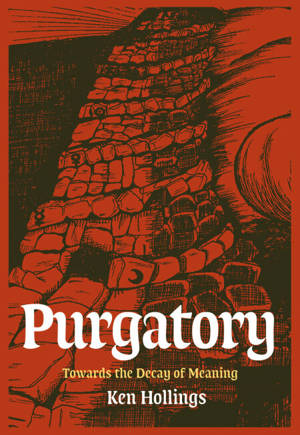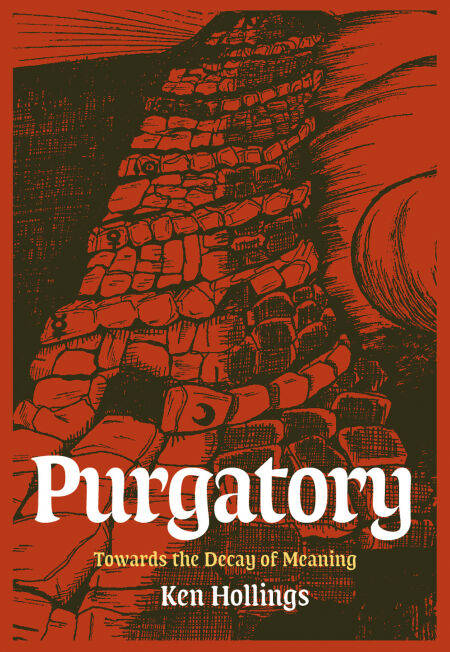
- Afhalen na 1 uur in een winkel met voorraad
- Gratis thuislevering in België vanaf € 30
- Ruim aanbod met 7 miljoen producten
- Afhalen na 1 uur in een winkel met voorraad
- Gratis thuislevering in België vanaf € 30
- Ruim aanbod met 7 miljoen producten
Zoeken
Purgatory, Volume 2 E-BOOK
The Trash Project: Towards The Decay Of Meaning
Ken Hollings
E-book | Engels
€ 19,66
+ 19 punten
Uitvoering
Omschrijving
A series of essays modeled on the Purgatory of Dante Alighieri—personal reflections, historical incidents, and unexpected mythological correspondences.
“The obsession with Beauty and Virtue must inevitably bring Trash into existence. Trash offers a way of lifting their curse; it marks the end of all such fatal enchantments.”
In this sequel to 2020’s Inferno, Hollings shifts his attention away from America in the Age of Pop to take a close look at European decadence and decay at the end of the nineteenth century. Purgatory follows the twin fates of Hallward and Hancock as they are drawn, like so many artists before them, towards the city of Paris. It was here that exiled Swedish playwright August Strindberg struggled to turn iron and carbon into gold, while the aesthete Sâr Péladan staged his sumptuous Salons de la Rose+Croix. Over a series of thirty-three essays directly modeled on the Purgatory of Dante Alighieri, personal reflections, historical incidents, and unexpected mythological correspondences are combined to uncover a restless underground labyrinth of alchemists, poets, painters, and philosophers. Together, their combined influence would shape not only the events of May ’68 but the emergence of a uniquely European form of Trash cinema devoted exclusively to beauty, sex, and despair.
To celebrate the 700th anniversary of Dante’s death, Ken Hollings offers the reader a radical retelling of the middle part of the Divine Comedy. Hell may be a tough act to follow—but, as Volume Two of the Trash Project reveals, Purgatory can be just as weird and dangerous.
“The obsession with Beauty and Virtue must inevitably bring Trash into existence. Trash offers a way of lifting their curse; it marks the end of all such fatal enchantments.”
In this sequel to 2020’s Inferno, Hollings shifts his attention away from America in the Age of Pop to take a close look at European decadence and decay at the end of the nineteenth century. Purgatory follows the twin fates of Hallward and Hancock as they are drawn, like so many artists before them, towards the city of Paris. It was here that exiled Swedish playwright August Strindberg struggled to turn iron and carbon into gold, while the aesthete Sâr Péladan staged his sumptuous Salons de la Rose+Croix. Over a series of thirty-three essays directly modeled on the Purgatory of Dante Alighieri, personal reflections, historical incidents, and unexpected mythological correspondences are combined to uncover a restless underground labyrinth of alchemists, poets, painters, and philosophers. Together, their combined influence would shape not only the events of May ’68 but the emergence of a uniquely European form of Trash cinema devoted exclusively to beauty, sex, and despair.
To celebrate the 700th anniversary of Dante’s death, Ken Hollings offers the reader a radical retelling of the middle part of the Divine Comedy. Hell may be a tough act to follow—but, as Volume Two of the Trash Project reveals, Purgatory can be just as weird and dangerous.
Specificaties
Betrokkenen
- Auteur(s):
- Uitgeverij:
Inhoud
- Aantal bladzijden:
- 344
- Taal:
- Engels
Eigenschappen
- Productcode (EAN):
- 9781913689247
- Verschijningsdatum:
- 8/06/2026
- Uitvoering:
- E-book
- Beveiligd met:
- Adobe DRM
- Formaat:
- ePub

Alleen bij Standaard Boekhandel
+ 19 punten op je klantenkaart van Standaard Boekhandel
Beoordelingen
We publiceren alleen reviews die voldoen aan de voorwaarden voor reviews. Bekijk onze voorwaarden voor reviews.








